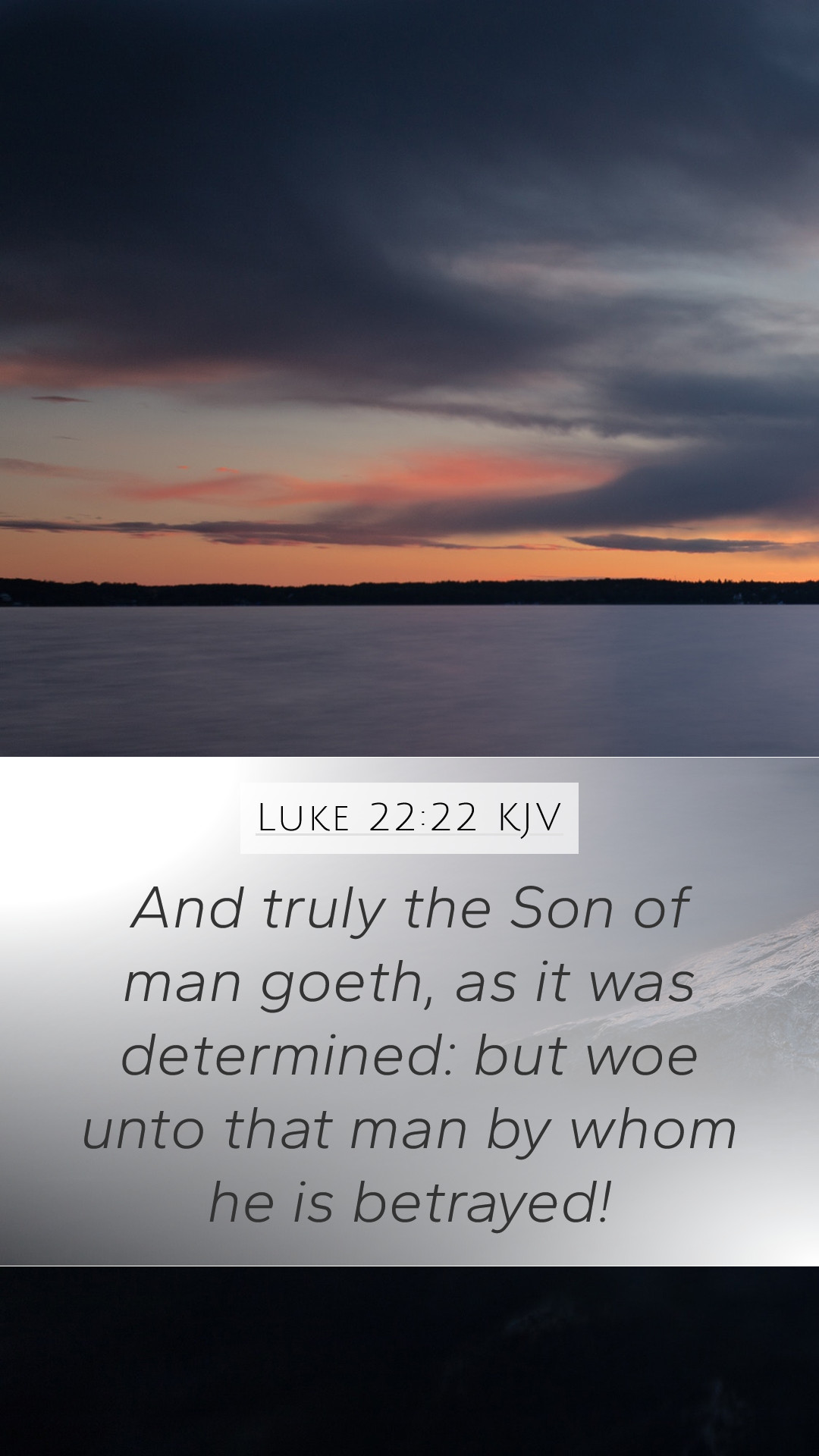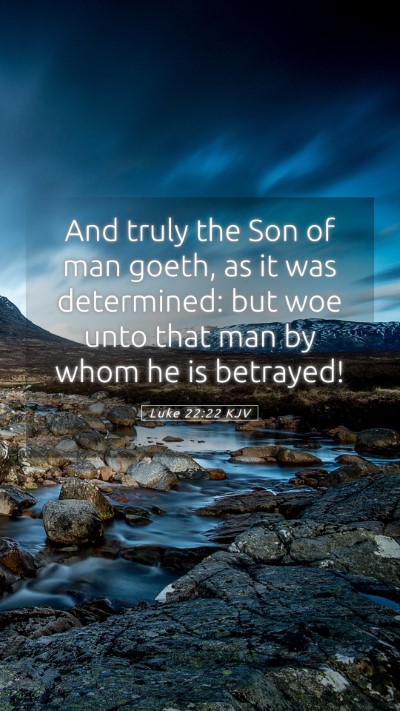Meaning of Luke 22:22
Verse: "And truly the Son of man goeth, as it was determined: but woe unto that man by whom he is betrayed!" (Luke 22:22)
This verse occurs during the Last Supper, as Jesus shares significant truths about His upcoming betrayal and the fate of the one who will betray Him. Let's explore the Bible verse meanings and interpretations through insights from Matthew Henry, Albert Barnes, and Adam Clarke.
Exegesis and Context
In this context, Jesus refers to His impending crucifixion. The knowledge of His destiny contributes to the emotional weight of the moment. The phrase "the Son of man goeth" highlights Jesus' acceptance of His path as predetermined. It contrasts with the serious warning to the betrayer, underscoring both the divine plan and human accountability.
Insights from Commentaries
-
Matthew Henry:
Henry emphasizes the sovereignty of God in the crucifixion of Christ. He notes that Jesus was aware of His sacrifice, fulfilling the prophecies laid out in Scripture. He insists that while betrayal is planned, it in no way absolves Judas of guilt, as free will is still a factor in the moral consequences of sin.
-
Albert Barnes:
Barnes comments that although the betrayal is part of God’s plan, it is highlighted with “woe” as an expression of deep sorrow and judgment for Judas. He points out that even though God knows the course of events, this does not diminish the weight of Judas' betrayal.
-
Adam Clarke:
Clarke adds that the betrayal revealed both the depths of human sinfulness and the heights of divine love. He suggests that Jesus' acknowledgment of the betrayal emphasizes the importance of choice and consequence in human actions, bringing forth a somber reflection on the nature of sin.
Theological Reflections
The verse invites believers to reflect on the themes of fate and free will, urging them to recognize the severity of sin and the boundless grace offered through Jesus. It speaks to the tension between divine foreknowledge and moral choice, leading to rich discussions in Bible study groups and online Bible study settings.
Application in Daily Life
Believers today can extract profound lessons from this verse:
- Moral Responsibility: Understanding that our actions carry consequences, emphasizing the weight of betrayal and sin in everyday contexts.
- Divine Sovereignty: Recognizing that God is aware of the future and reassures believers of His ultimate plan, encouraging trust in His intentions.
- Faithful Discipleship: A call to strive for faithfulness in our relationship with Christ, avoiding paths that lead to betrayal of trust or truth.
Related Bible Cross References
- Matthew 26:24 - "The Son of man goeth as it is written of him: but woe unto that man by whom the Son of man is betrayed!"
- John 13:21 - "When Jesus had thus said, he was troubled in spirit, and testified, and said, Verily, verily, I say unto you, that one of you shall betray me."
- Acts 1:16-20 - The thematic exploration of Judas’ role and the fulfillment of Scripture regarding his betrayal.
Conclusion
In conclusion, Luke 22:22 encapsulates the profound realities of biblical prophecy, human betrayal, and divine sovereignty. It serves as a pivotal reminder of the significance of each individual's choices and the consequences they bear. Through Bible study insights and theological reflection, believers are invited to delve deeper into understanding Scripture and the everlasting impact of Jesus' teachings.


